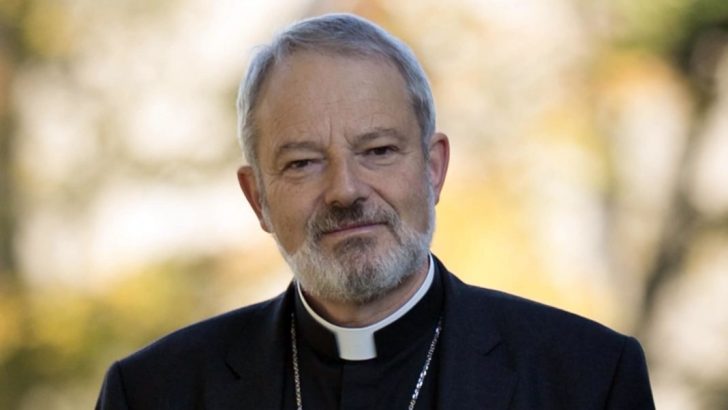A new catechetical initiative will see the whole diocese learning together, Bishop Kevin Doran tells Cathal Barry
Adult faith formation has been placed firmly on the agenda in Elphin with the announcement by Bishop Kevin Doran that the diocese is accepting applications for the role of volunteer catechist.
This will involve lay people being commissioned as leaders of faith-based education programmes, in partnership with priests and parish communities.
“These will be men and women who have an interest in their own faith and a sufficient commitment to wanting to share it with others,” Bishop Doran told The Irish Catholic.
The training programme is part time and spread over four years. The first year is a preliminary year where the successful applicants participate in a number of exploratory weekends.
Over the next three years, the candidates will be offered an integrated programme of spiritual formation, personal development and formal studies leading to an accredited Diploma in Lifelong Religious Education. Alongside this, they will participate in relevant placements. For successful applicants, costs will be borne by the diocese.
“One of the things I have always felt we have needed in parishes is someone to support the business of adult faith formation,” Dr Doran said.
Resources
“A huge amount of the resources in the Church go into the school system and catechetics in schools which is great but once people leave school then often there is very little growth in their understanding of faith unless they go out of their way to do a course in theology or something.
“It’s just a feeling that people would be able to participate more effectively in Church and understand their faith more if we had the possibility of having regular opportunities for them to come together in their parish to explore their faith,” he said.
Citing the recent publication of Pope Francis’ exhortation on marriage and the family and his encyclical on the environment before that, Dr Doran questioned what would become of them without further study.
“What happens to those? They come out but does anyone actually ever unpack them,” the bishop asked.
“Up to now there might have been courses around the place that people go to for their own nourishment and you might get 10 or 20 people in a whole diocese taking part. That is largely for themselves, for their own nourishment, which is good. However, what we are looking at here is really to get people who are prepared to commit to a time of formation which will not be just for themselves but will actually enable them to bring something back to their parish,” he said.
In an information booklet entitled Partners in the Gospel, Dr Doran explained how “even for people who believe in Jesus Christ”, faith is not thought of as ‘good news’.
“This may have something to do with the fact that, while much good work is going on in our parishes, our focus tends to be more on religious practice than on a personal encounter with Jesus Christ. If we want something to change, then we have to do something different,” he said.
“It seems that the time has now come to establish the ministry of catechist as part of the life of every parish community in our diocese. It would be intended to nourish the faith of those who are already active in their local Christian Community; to fan the flame of faith in those who are baptised but have drifted away from the practice of their faith and to proclaim the good news to those living among us for whom Christ and the Church remain unknown or unfamiliar.”
Normally, the role of catechist role is a voluntary one where the person commits initially for five years to giving two to four hours of their time per week to organising and delivering various faith related programmes and opportunities.
Bishop Doran told this newspaper, however, that “it is possible that as time goes on in a larger parish perhaps where they might need somebody full time or in the diocese where you need somebody to serve as a coordinator then there may be some actual job opportunities”.
By and large, however, the bishop said, “we are looking at volunteers partly because that is what reality tells us the Church doesn’t really have but more importantly because I think it’s good to encourage people to contribute something to their own faith community”.
Colette Furlong who is employed as a catechist in the Sligo cluster parishes said the initiative provides “that missing link between the ideal of lay involvement in pastoral and catechetical outreach in the diocese and the theological grounding needed to do so effectively”.
“The thought that we might have a number of lay adults not just willing to be involved in an initiative like outreach to parents of Confirmation children, or parents preparing to have a child baptised for example, but pastorally and theologically equipped for the ministry, revives that vision. This is so welcome and so broadens our pastoral and catechetical options for the future,” she said.
The programme’s director, Fr Michael Duignan described the new venture in lay ministry as “another very welcome and exciting development in our diocese”.
“It will offer people who wish to grow in knowledge of their own faith and share that knowledge in a dynamic way with others a real and recognised opportunity to do so in partnership with the bishop, priests and parishioners.”
Ultimately, according to Bishop Doran, this initiative will “help people to understand their faith, it will help people to participate more richly in the liturgy and it will also help people to live their faith in action in terms of the kind of service that they offer to their local community”.
“We would like to see the whole diocese learning together,” he said.
For further information see www.elphindiocese.ie


 Cathal Barry
Cathal Barry Bishop Kevin Doran
Bishop Kevin Doran 